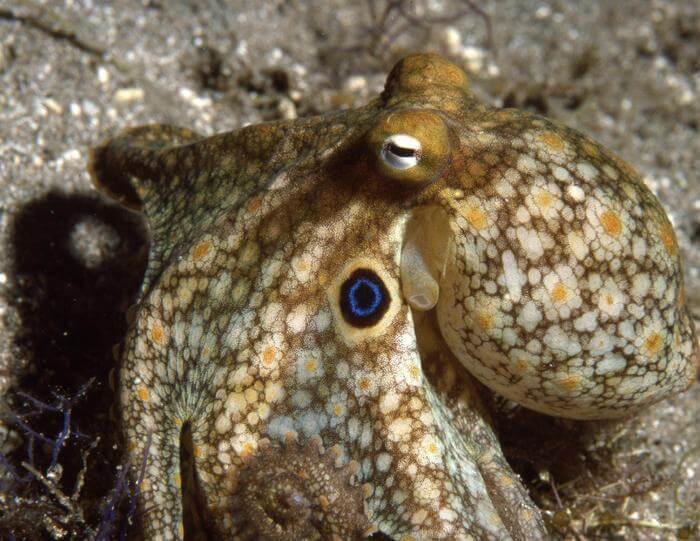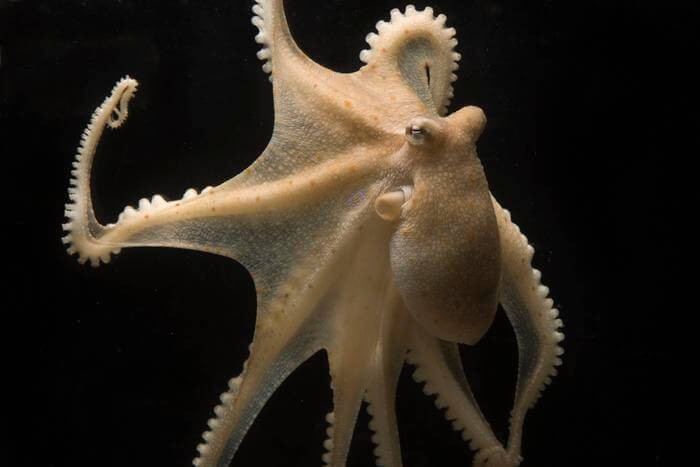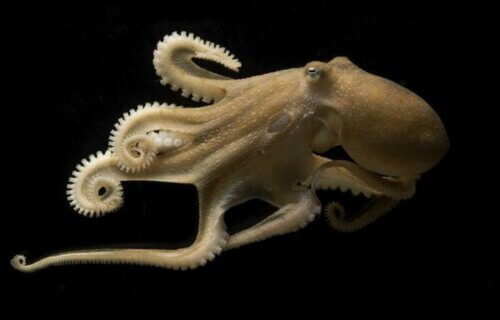WOODS HOLE, Mass. — Octopuses adapt to seasonal temperature shifts by reconfiguring their own brains, a recent study reveals. According to an international team, these eight-limbed, enigmatic creatures actually manipulate life’s building blocks to adjust to colder and warmer water, shedding new light on their remarkable intelligence.
Researchers explain that octopuses can independently edit RNA, DNA’s single-stranded cousin, responsible for unlocking genetic code data. This RNA modification process, which changes in conditions like Alzheimer’s and other neurological diseases, may pave the way for potential therapeutic treatments in the future.
“We generally think that our genetic information is fixed, but the environment can influence how you encode proteins, and in cephalopods this happens on a massive scale,” says senior author Joshua Rosenthal of the Marine Biological Laboratory in Massachusetts.
Known for their intellectual capabilities, octopuses have displayed the ability to use tools, protect themselves by throwing coconut shells and rocks, and even take defensive measures using jellyfish tentacles. In captivity, they can learn to solve puzzles, open jars, and express their dislike for humans by squirting water. Their cognitive abilities seemingly match those of the average dog.

This group of marine creatures, called cephalopods, also includes squid and cuttlefish. Scientists have long been curious about how these creatures became the most intelligent invertebrates, even rivaling mammals. The study discovered that octopuses generate different neural proteins based on whether the seawater is warm or cold. Unlike DNA mutations that allow for adaptation over generations, RNA editing provides a temporary and flexible way to adapt.
Octopuses, which do not regulate their body temperature, would suffer brain damage from sudden temperature changes. Unlike humans, who only edit around three percent of their genes, smart cephalopods can recode the majority of their brain proteins. This unique phenomenon across the animal kingdom helps them adapt to their environments.
“RNA recoding gives organisms the option to express a diverse quiver of proteins when and where they choose,” Rosenthal explains in a media release. “In cephalopods, most of the recoding is for proteins that are really important for nervous system function, so the natural question is, are they using this to acclimate to changes in their physical environment?”

In the wild, octopuses encounter both rapid and slow temperature changes during dives into colder depths or upwelling and from summer to winter, respectively. Focusing on the two-spot octopus — a small, yellowish-brown species found off the coasts of California and Mexico — the international team compared RNA transcripts after acclimating adults to warm (22ºC) or cold (13ºC) waters in tanks at the Marine Biological Laboratory.
“Temperature-sensitive editing occurred at about one third of our sites—over 20,000 individual places—so this is not something that happens here or there; this is a global phenomenon” says co-senior author Eli Eisenberg of Tel-Aviv University, who handled the computational aspects of the study. “But that being said, it does not happen equally: proteins that are edited tend to be neural proteins, and almost all sites that are temperature sensitive are more highly edited in the cold.”
Following this, working with thumbnail-sized juveniles, the researchers gradually heated or cooled tanks and found significant RNA editing changes in less than a day.
“We had no real idea how quickly this can occur: whether it takes weeks or hours” says first author Matthew Birk, who led the project as a postdoctoral fellow at the Marine Biological Laboratory and is now an assistant professor at Saint Francis University. “We could see significant changes in less than a day, and within 4 days, they were at the new steady-state levels that you find them in after a month.”
Further analysis revealed that this recoding caused structural changes impacting their function. The study also confirmed that temperature-sensitive RNA editing occurs in wild octopuses in response to seasonal temperature changes, which were similar to those observed in the lab. This was true not only for California two-spot octopuses but also for the closely related Verrill’s two-spot octopus (Octopus bimaculatus).
The team hypothesizes that temperature-sensitive RNA editing could be widespread among other octopuses and squid.
Octopus and human brains have more in common than you think
In 2022, researchers from the Max Delbrück Center and Dartmouth College found that an octopus’ brain is similar to a human’s. These creatures descended from the same primitive worm-like animal. It has a complex central nervous system, reflecting similar developments that occurred in vertebrates — animals with backbones.
Researchers discovered that octopuses possess a massively expanded repertoire of gene regulators called microRNAs (miRNAs) in their neural tissue. It reflects similar developments that occurred in vertebrates — including humans.
Prof. Nikolaus Rajewsky said the bits of DNA probably play a fundamental role in the development of complex brains. An analysis of 18 different tissue samples from dead octopuses identified 42 novel miRNA families — mostly in the brain. The genes were conserved during cephalopod evolution, being of functional benefit to the animals.
“This is the third-largest expansion of microRNA families in the animal world, and the largest outside of vertebrates,” says Grygoriy Zolotarov, MD, a Ukrainian scientist who interned in Rajewsky’s lab.
“To give you an idea of the scale, oysters, which are also mollusks, have acquired just five new microRNA families since the last ancestors they shared with octopuses – while the octopuses have acquired 90!”
South West News Service writer Mark Waghorn contributed to this report.

